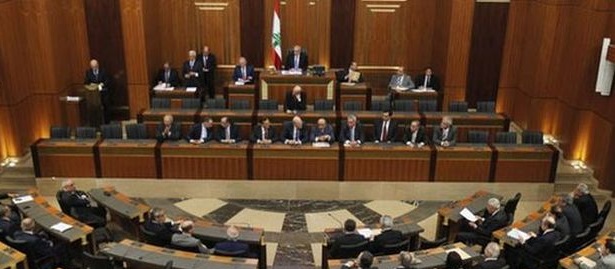By Thair Abbas, 18 February 2014

Lebanese MPs attend a parliament session in Beirut, Lebanon, on May 31, 2013. (Reuters/Mohamed Azakir)
<p>Beirut, <em>Asharq Al-Awsat</em>—Lebanon’s unwritten constitution
has, as anywhere, arisen from tradition. In other words, any practice in
Lebanese society that has affected government and which has been
repeatedly practiced has become part of the constitution, so long as
nobody objected to it too vocally. One of the eldest of these traditions
is, perhaps, the division of power along sectarian lines that has
arisen since 1943, known as the confessional system. In that year, when
Lebanon was liberated from the French mandate, the country’s leaders met
and agreed to the unwritten “National Pact,” which divided power—in
particular, seats in the new parliament—between Christians and Muslims
in a 6:5 ratio. The president and the heads of the army and public
security would all be Maronite Christians. A Shi’a Muslim would be
appointed Speaker of Parliament, and a Sunni Muslim would be Prime
Minister. Though this arrangement was not written down, changing it was
one of the causes of the devastating civil war that ended in 1990, with
the signing of the Taif Agreement.
Read the full article here:
Aswaat
